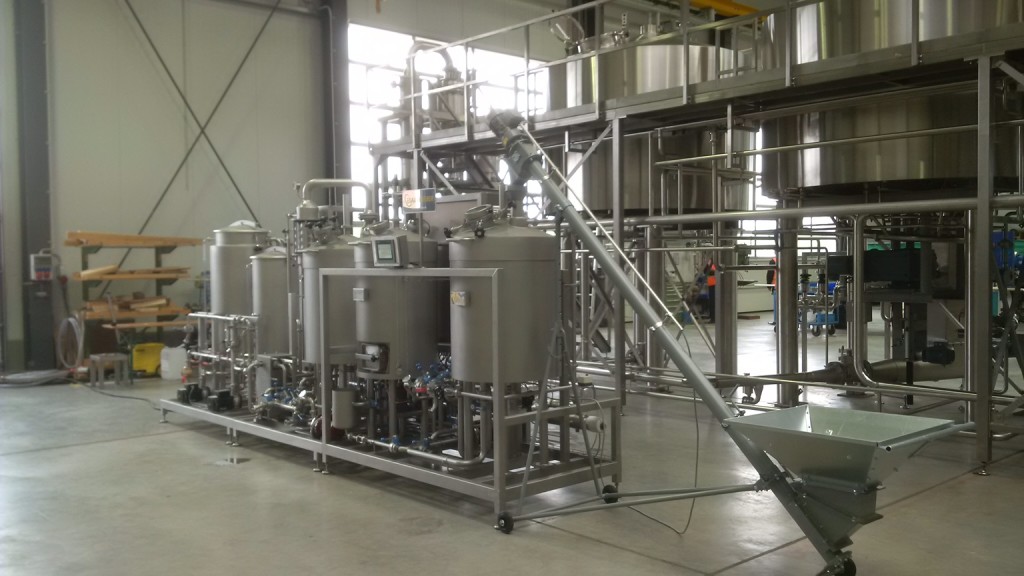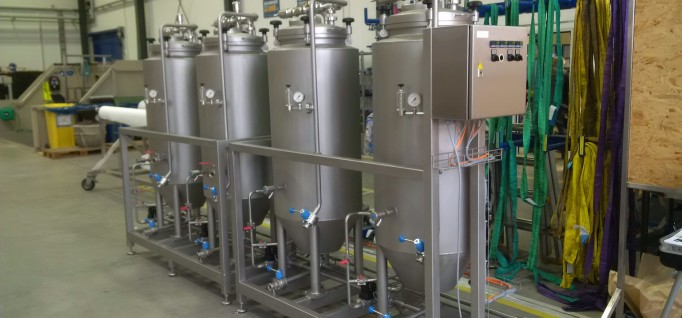Creating a Sustainable Program for the Region
By Rebecca L. Weber
February 19, 2016
Craft brewing is taking off in Michigan. Here’s how one college is handling the challenges and opportunities of starting a beer-focused program.
In Kalamazoo, Michigan, craft brewing is rapidly expanding with businesses focusing on traditional brewing, distribution, bottling and growing hops. Now, with the help of industry partners as well as other higher-education institutions, colleges are helping to prepare skilled workers who know the ins and outs of the craft-brewing sector.
At Kalamazoo Valley Community College (KVCC), the environment was just right to start a new sustainable-brewing program. KVCC’s downtown campus is known for its work in food, health, sustainable development and workforce training. Dean McCurdy, associate vice president for food and community sustainability, shares a few of the hurdles encountered in getting the program off the ground and describes where the program is today, after a debut in fall 2015.
About the program
One-year certificates, two-year associate degrees and four-year bachelor’s degrees through Western Michigan University (WMU) are all options. The 30-credit-hour certificate can fold into the two-year degree, which in turn can transfer to the four-year degree.
KVCC partnered with both the brewing industry and WMU from the outset. They collaborated on the curriculum, which came together in about two months.
“Aligning the process was a big challenge,” McCurdy says. “We had curriculum committees that literally met at the same day and same time. But it was very clear that this was a win-win for both institutions, and a win for the students. For them, it’s seamless.”
About 70 students, most of whom intend to complete the certificate, enrolled this past fall. Some want to be home brewers extraordinaire, and others are changing careers; McCurdy counts a chef, a nurse and a geologist among the current enrollees.
The program can double and is expected to enroll another cohort of about the same size in fall 2016. Noncredit offerings, summer academies and corporate trainings could be in the future.

Supporting the region
Employment opportunities for students align well with salary expectations, McCurdy says. A certificate holder can expect to earn in the mid-$30,000s to low- $40,000s. The two-year program combines small-business management and science knowledge—perfect for a startup operator or someone looking to move up from an entry-level job. The four-year degree builds on the science work and involves more research.
The advisory board includes about a dozen craft breweries that helped fund the environmentally state-of-the-art brewery that will soon be installed. The stainless-steel system from Germany fits inside a standard-sized lab and includes full industrial functionality, scaled down to make a single barrel of beer at a time—just enough to give students the full brewing experience without creating a lot of waste.
Addressing issues of waste product and minimizing water consumption—a particularly hot topic in Michigan right now—are top of mind.
Tips for starting a similar program
Is there a sector like this in your region? McCurdy has some advice:
Early on, talk with the state liquor commission to determine boundaries. Laws may be decades old, from an era when the idea of producing alcohol on a college campus was unthinkable.
“This program is an example of what you can do when you work up front with your partners, when you involve them directly from the beginning,” McCurdy says. “The educational product is so much better.”
KVCC’s beer won’t be for sale. After being sampled and evaluated for quality, it will be disposed of via local breweries—or possibly used as an alternative fuel.
Photos courtesy of Kalamazoo Valley Community College







